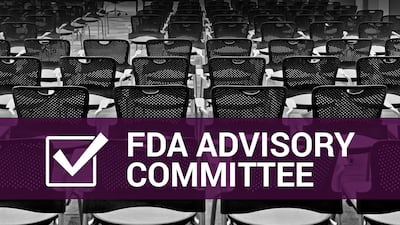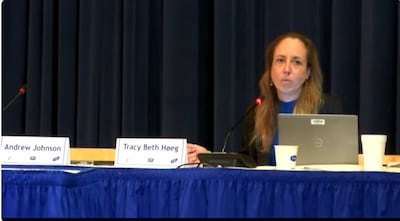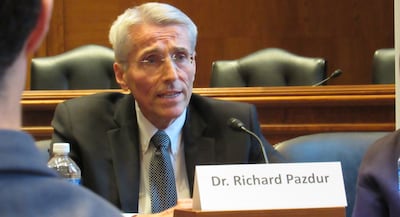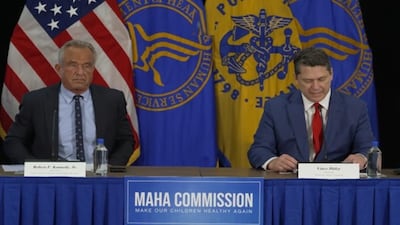US Advisory Committees
New terms of reference for the Advisory Committee on Immunization Practices’ overhauled work groups on influenza, HPV and RSV reflect some members' broader concerns about the potential long-term adverse effects of vaccination.
A workshop co-hosted by the US FDA and Duke on ideas to expand access to epinephrine for anaphylaxis is the latest example of the agency holding a public meeting that could have been an advisory committee – but without the formalities.
After conducting more than 30 meetings for drugs, biologics and related issues in 2023 and 2024, less than half as many were held in 2025.
The tilt toward approval extended beyond patients and advocates to clinicians, professional societies and industry.
At a CDC vaccine advisory committee criticized for “promoting an anti-vaccine agenda,” the new CDER director championed the committee’s plans and suggested the FDA would make more frequent vaccine label updates due to revised safety frameworks.
Because combination vaccines remain in the US childhood vaccine schedule, ACIP's reconsideration of hepatitis B vaccine dose timing could impact uptake of other immunizations, Demetre Daskalakis told the Pink Sheet.
From how he will interact with industry to his staff, to a possible advisory committee revival and dangling accelerated approval crackdowns, Pink Sheet looks at how Rick Pazdur's oncology track record could translate to CDER.
Formal meetings like application orientation sessions or patient listening sessions are becoming increasingly important as the FDA schedules fewer advisory committee meetings for applications, experts said.
Unanimous vote on trivalent Southern hemisphere 2025-2026 influenza vaccine composition by US FDA advisory committee agrees with World Health Organization, but committee members want to keep quadrivalent capacity available
Recent and upcoming US FDA advisory committee meetings and a summary of the topics covered.
The risks, as well as the benefits, of vaccination could be long-term, Advisory Committee on Immunization Practices member Retsef Levi said. The FDA’s Tracy Beth Høeg also said long-term safety data are needed to inform the benefit-risk analysis of the hepatitis B birth dose.
The new recommendations should not change insurance coverage, but the tone of the meeting frustrated many medical experts, because of the negative comments on the vaccines.
Confusion, inconsistency and strongly held views complicated the CDC's Advisory Committee on Immunization Practices' votes to change vaccine recommendations for the measles, mumps, rubella, varicella vaccine in young children and tabling of a vote on hepatitis B vaccine at birth.
Recent and upcoming US FDA advisory committee meetings and a summary of the topics covered.
The Advisory Committee on Immunization Practices recommended against continued use of Merck’s measles, mumps, rubella and varicella combination vaccine in very young children, but voted to retain coverage for the same use in the Vaccines for Children program.
The ACIP put hepatitis B and MMRV vaccines on its agenda, despite having no new reason to relitigate the products, worrying public health experts that more anti-vaccine moves are coming.
The CDC and its Advisory Committee on Immunization Practices reportedly are planning to make unsubstantiated claims about COVID-19 vaccine adverse events with little recourse for manufacturers and other stakeholders.
The administration's first actions on drug advertising linked to a new MAHA Strategy report may suggest more specifics about its plans exist than in the limited text of the report.
Pink Sheet editors discuss the recent departure of a noted vaccine expert and many others from FDA advisory committee rosters, as well as the details and potential impact of the FDA’s release of dozens of complete response letters for unapproved products.
A Pink Sheet review found 10 FDA advisory panel members recently pulled off committees despite having time left in their appointed terms.



















